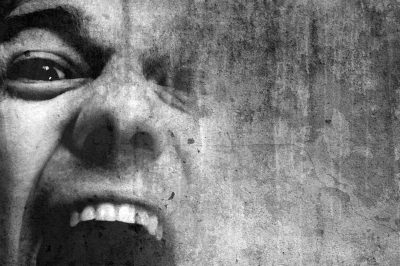News of the Casey Anthony trial has been hard to avoid. Every major news outlet has devoted space to it.
The BBC World News Service ran an article just moments following the verdict in an effort to account for the reasons this trial had received so much attention. In summary, here are the reasons offered by Washington correspondent Tom Geoghegan:
One, given the elements of the story it was too big to ignore.
Two, the story had “’cultural equity.’” Once the media decided to cover it there was “no going back.”
Three, “viewers get sucked into the soap opera.”
Four, we share so little in common that something like this brings us together.
Five, the story was riveting because a mother was accused of killing her child. The story would not have been as interesting had it been a story about a little girl killed by her father.
Six, morbid interest in the child’s death and her mother’s conduct. As one interviewee put it, “It was better TV than a reality show.”
There is nothing definitive about Geoghegan’s list, I suppose, but it is difficult to know (barring far more extensive research) exactly what other factors may account for the non-stop attention the trial received. But in looking back over the list, I can’t help but wonder what his take on the trial’s noteriety says about our souls and about what the coverage of a story like this does to our souls.
Here is some of what occurs to me…
One: There is not a single altruistic reason for the story’s interest here. No concern for the child herself. No concern about provisions for the safety of children in general. No conversations about the responsibilities of parenting.
That’s troubling, to say the least. If the trial had generated a conversation about those issues, then the attention it received might have justified the time devoted to it. But if there is nothing more here (as Geoghegan hints), than yet another “trial-of-the-century” dynamic, then that is a sad commentary on our spiritual seriousness — and bad news for our nation’s children. Misery and misfortune, injury and death, justice and the miscarriage of justice should take us right back into conversations about the most basic values of our society, their preservation, and their practice.
Two: When the suffering and misery of others becomes the stuff of entertainment, we are — by definition — in spiritual peril. In that regard, reality as entertainment is a volatile formula.
Entertainment (and, particular, comedy) has always traded to some degree on the pratfall and embarrassment. But in fictional portrayals, the occasions for laughter are typically larger than life and depend upon exaggeration. Buster Keaton and Lucille Ball traded on persona’s that were larger than life and, for that reason, were unlikely to draw comparisons with our neighbors and friends.
But reality television erases those lines and with them our capacity for compassion and respect. The actors are our neighbors. They are our friends. And their lives are the focus of our curiosity and laughter.
It’s no small wonder then, that the formula is easily reversed. If entertainment can embrace reality, then reality does not need translation to become entertainment. And like the characters of a fictional account, the real life actors are equally disposable and irrelevant to us, apart from their entertainment value.
It is no surprise that Geoghegan’s article looks back on the Anthony trial’s predecessors (Simpson, Jackson, Menendez) and anticipates the next spectacle. Why wouldn’t it? After all, it’s simply the entertainment of the moment.
Altruism and the respect for human life may not figure in conversations about the spiritual life — and I have no doubt that they sound terribly old-fashioned. But they are both values that require us to think beyond the narrow confines of our own lives. And they demand that we pay serious attention to the losses and misfortunes of others.
I have no way of knowing whether Caylee Anthony received the justice she deserved from our judicial system. I am sure that she received considerably less justice than she deserved from our culture. And that should prompt some soul-searching.












